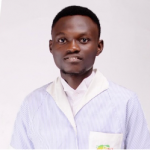
HPHR Journal Fellow: Gabriel Oke Interviews Bukola Idowu on the ”Without Health We Have Nothing Series”.
Mr. Bukola Idowu is the founder of Kimpact Development Initiative (KDI). KDI uses in-depth research, capacity development, and public policy advocacy with a bottom-up and holistic approach to create change in policy and practice towards a more supportive environment for citizen-led development. It supports the government and policymakers to engage citizens in the decisions that affect the general public.
Research has established employment status as a determinant of health. Unemployed and underemployed people tend to have higher levels of impaired mental health including depression, anxiety, and stress, as well as high levels of mental health hospital admissions, hypertension and premature mortality than employed people.
A key message of the World Health report in 2010 is that “…millions of people cannot use health services because they have to pay for them at the time they receive them. And many of those who do use services suffer financial hardship, or are even impoverished because they have to pay.” Out‑of‑pocket payment is payment for health care at the point of service and about 70% of healthcare payments in Nigeria are made out-of-pocket.
To cushion the potential negative impacts of the persistent underfunding in the health sector, efficient health financing and health insurance schemes are required to provide financial risk protection for Nigerian by ensuring that a pool of funds is available to provide for healthcare needs. The premiums paid to cover the medical expenses incurred by the insured individuals will help cushion the cost of paying for healthcare services.
References
1. Ifeanyi Nsofor: Without Health, we have nothing (TedxOguiRoad, 2018). Available at: https://www.youtube.com/watch?v=u4r_0TLTBQw
More from Gabriel Oke here.
BCPHR.org was designed by ComputerAlly.com.
Visit BCPHR‘s publisher, the Boston Congress of Public Health (BCPH).
Email [email protected] for more information.
Click below to make a tax-deductible donation supporting the educational initiatives of the Boston Congress of Public Health, publisher of BCPHR.![]()
© 2025-2026 Boston Congress of Public Health (BCPHR): An Academic, Peer-Reviewed Journal
All Boston Congress of Public Health (BCPH) branding and content, including logos, program and award names, and materials, are the property of BCPH and trademarked as such. BCPHR articles are published under Open Access license CC BY. All BCPHR branding falls under BCPH.
Use of BCPH content requires explicit, written permission.